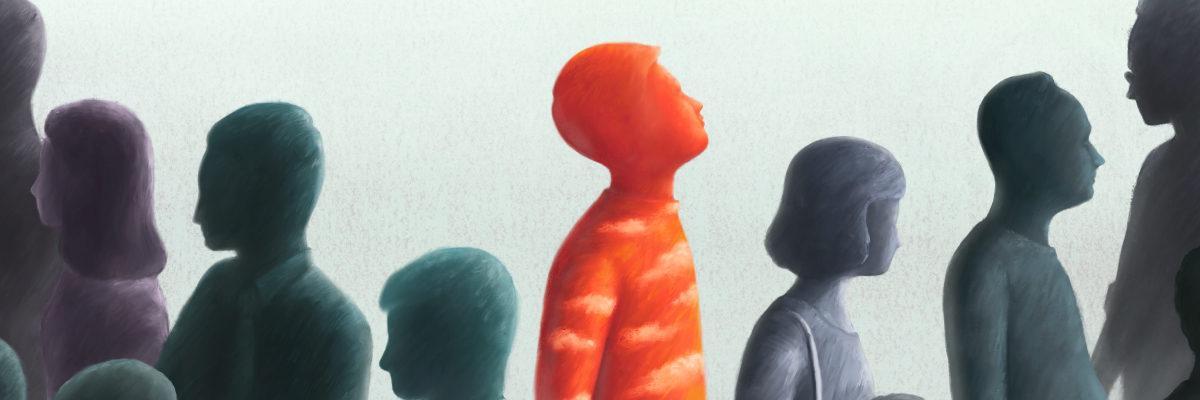
Although genetic profiling can provide useful information that can enhance personalized treatment plans for individuals, Ahn and Perricone (2023) argue that learning more about one’s genetic risk for mental disorders can have unintended and potentially negative consequences.
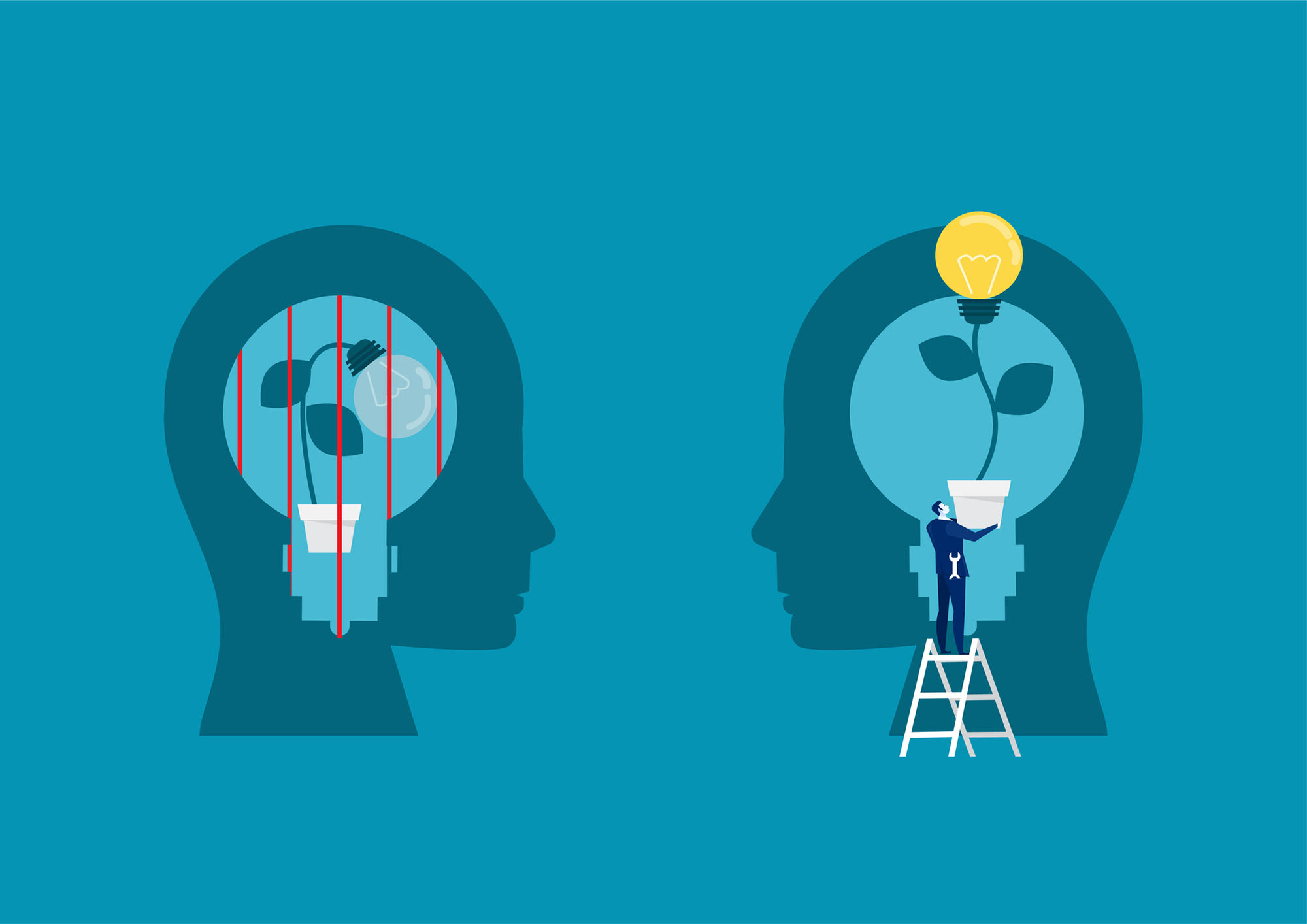
Podcast: Diagnoses often oversimplify complex mental health problems. APS Fellow Eiko Fried, a psychologist and methodologist at Leiden University, explains new approaches to mental health research and practice.

Podcast: Excerpts from our first 100 episodes: a skeptical look at the Myers-Briggs test, what happens in the grieving brain, common myths of psychological science, and more.

Bilingual people from cultural backgrounds in which mental health is a taboo topic may be more open to treatment when they hear information in their second language.

Few psychologists realize that a potent risk factor for psychological disorders has been hiding in plain sight: people’s dissatisfaction with their current romantic relationship. Teach critical thinking about risk factors and relying on scientific evidence rather than intuition.

Clinical psychologist Dominika Ochnik discusses her research into singlehood and well-being, mental health risks among young people, and her plans to study associations between urbanization and mental health.

A recent study reveals how organizational-level biases affect how patients and even providers are viewed—and in ways that can produce racial and ethnic inequities.

One reason happiness can seem so elusive is that our current feelings can interfere with memories of our past well-being. Analysis of four longitudinal surveys.

Eight articles focus on different aspects of mental health in the context of the global pandemic.

Therapists high in competence and warmth may also boost patients’ willingness to continue treatment and even improve clinical outcomes.

Despite the nature of clinical psychologists’ work, there is a stigma around disclosing personal mental health difficulties or diagnoses, even if those difficulties or diagnoses are the reason they chose to enter the field.

APS President Alison Gopnik discusses the increasing amount of scientific evidence that our experiences as children shape our adult lives.

Lesson plans about successive relearning and finding happiness after being diagnosed with a mental disorder.

More often than not, recipients of support perceive offers of help far more positively than we might expect them to.

To speak about self-injury and how online communities might help, Emma Preston, an APS member and graduate student at the University of Southern California, joined APS’s Ludmila Nunes.

Depression may be more closely related to how we perceive our relationships and position within a community than to whether or not we are socializing with others.

Podcast: Questions often emerge when researchers tend to engage in research on topics that are personally relevant for them. How is this type of self-relevant researchperceived? Researcher Andrew Devendorf discusses.

Concerns about overlapping symptoms, complex disorders lend momentum to diagnostic models that could supplement—or even supplant—the DSM.
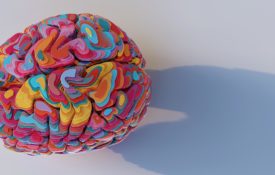
What do we know about the prevalence of mental health difficulties among psychological scientists? APS member Sarah Victor, a clinical psychologist and professor at the Texas Tech University, joined APS’s Ludmila Nunes to discuss mental health among psychologists.

Unaddressed mental health concerns can echo through the generations of a family, but the exact path depression, anxiety, and other disorders may take through the branches of a family tree isn’t always straightforward.

Students and early-career researchers discuss their research relating to advances in clinical psychology.

Katie Wang discusses methods to address the damaging effects of social oppression and structural stigma on marginalized communities.

We often hear of the adverse chronic effects and burden of psychopathology. But many patients go on to attain a purposeful and autonomous life.

Two Filipina researchers advocate for broader representation in academic psychology and outline considerations for others whose first language is not English.

Researchers have started to link the negative outlook brought about by depression to an impaired ability to update expectations.

How powerful are those self-defeating voices? Overcoming them took decades for this psychological scientist.

People who have suffered from mental illness can go on to develop a long-lasting sense of well-being and achieve a “high-functioning” life.

Our immune system uses inflammation to fend off infection and heal injuries, but when this system is overburdened, inflammation can also fuel mental health conditions.
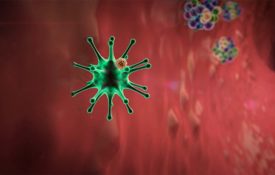
Advances in assessment and intervention could help tip the scale toward survival, one life at a time.

Experts from the APS Global Collaboration on COVID-19 have responded to a call for input on digital health from the White House.

2022 Spence Award winner Brett Ford talks about her research on emotions.

Researchers share how their work is advancing the understanding and treatment of conditions like postpartum depression, OCD, and bipolar disorder.
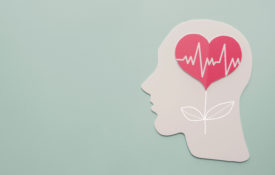
Reduced access to rewards may influence brain development, contributing to the increased prevalence of mental health disorders in children living in economically impoverished environments.

When a person receiving care has dementia, the caregiver is much more likely to experience depression or anxiety, especially if they have high levels of emotional empathy.

People who can imagine achieving their goals in greater detail are less likely to be or to become depressed.

Students prone to self-doubt and fear of judgement may have increased sensitivity to stress.

The feelings of work related exhaustion associated with "burnout" could be a form of depression.

New research associates early life adversity with the presentation of social anxiety disorder later in life.

Instructors should be prepared to listen for —and challenge — belief perseverance, and can use this myth to highlight how automatic and difficult belief perseverance can be to overcome.
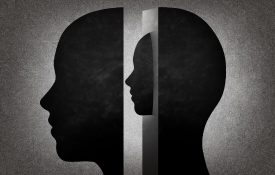
A new study in Clinical Psychological Science suggests that there has been little to no increase in the association between adolescents’ technology engagement and mental health problems.

Unwanted memories can intrude on our thoughts from time to time, but new research suggests that a lack of sleep can greatly impair our ability to suppress these unpleasant and unwanted thoughts. Researcher Scott Cairney
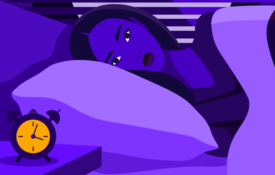
Cell phones and social media can help teens cope with stressful events—as long as they strike the right balance between spending time online and pursuing other coping activities.

Launched in 2009, the RDoC framework integrates many levels of information spanning the full range of human behavior to better understand the nature of mental health and illness.
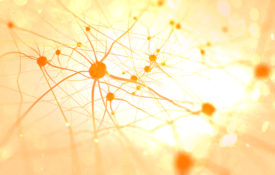
The ambiguous nature of many psychological symptoms makes them particularly sensitive to misinformation.
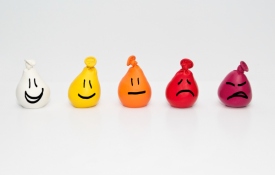
Trauma-sensitive and socioculturally adapted group intervention can significantly reduce posttraumatic stress disorder.

Longitudinal data from adolescents and young adults show no evidence that social media use predicts later depressive symptoms.

We may think of depression as a recurring condition with a gloomy prognosis, but findings from one study indicate that nearly 10% of adults in the United States with major depression were thriving ten years later. The findings suggest that some people with depression experience more than a reduction in depressive symptoms over time – they can achieve optimal psychological well-being.
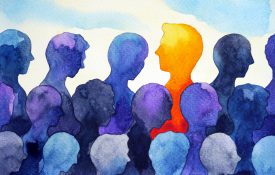
A systematic review doesn't disprove the myth linking creativity and mood disorders but it shows there's little evidence for it.
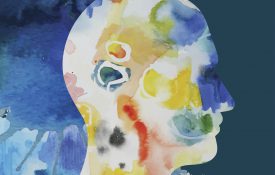
Nearly 2 years into the COVID-19 pandemic, an emerging body of literature is revealing the pandemic’s mental health impact on children, adolescents, and adults, including those who had previously been diagnosed with a mental illness.
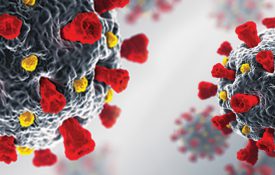
Adults may "explain away" symptoms of childhood disorders that present in an otherwise positive environment.

Social interaction is considered to be such an important contributor to physical and mental well-being that individuals who show relatively low drive for and pleasure from interacting with others are sometimes given a clinical diagnosis

Data from a longitudinal study show that age-related declines in abstract reasoning ability predict increasing depressive symptoms in subsequent years.

Research shows a link between one's tendency to view life in extremes can identify cognitive processes linked with psychological disorders and suicide risk.

Some mental health patients report more symptoms than they actually experience and this is often attributed to malingering, when people intentionally inflate their symptoms for some benefit. The assumption that such patients are malingering tends to overshadow alternative explanations, even though research indicates that there are actually multiple pathways that could lead to overreporting. Researcher Harald Merckelbach of Maastricht University and colleagues review the available data and detail some of these alternative explanations in Current Directions in Psychological Science.

Henry Ho, an assistant professor at The Education University of Hong Kong, researches the psychosocial and emotional factors that support well-being at work and at home.

Read about effective, science-backed interventions for mood disorders and other mental illnesses.
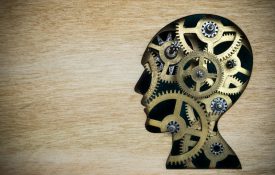
Violent individuals are often assumed to suffer from a long history of mental illness that compels them to act destructively, but the link between psychosis and aggressive acts may be weak.

A longitudinal twin study suggests that victimization makes general and far-reaching contributions to mental disorders.
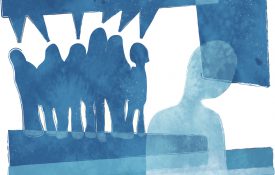
APS James McKeen Cattell Fellow Stephen P. Hinshaw has dedicated his career to uncovering the biological and contextual underpinnings of developmental psychopathology — and to combatting the stigma associated with mental illness.

Using eye-tracking technology, researchers have found that women with a history of depression tend to spend more time looking at the angry faces compared to women with no history of depression.

A team of clinical scientists takes an in-depth look at three systems used for understanding mental-health disorders.

A special section in Clinical Psychological Science highlights the different approaches that psychology researchers are taking to understand the many ways in which nutrition and mental health intersect.

APS James McKeen Cattell Fellow Robert J. DeRubeis is applying actuarial modeling to mental health care to improve treatment selection and ensure that patients receive care that meets their individual needs.

Telehealth during COVID-19 points to the digital future of mental healthcare.

The impulsive behavior and decision making that characterize adolescence are a developmental feature, not a bug, says APS Fellow BJ Casey.

Data from participants ranging from 5 to 25 years old suggest that adolescents don’t distinguish between negative emotions as clearly as younger children and adults in their 20s do.
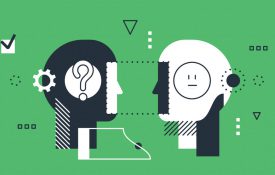
Can psychological science provide safer approaches to managing chronic pain and overcoming addiction?

Repeated incidences of racial discrimination and violence have far reaching consequences for mental health.

Bipolar disorder, like most psychiatric disorders, is characterized by the frequency and severity of its symptoms. Many people may exhibit characteristics of the disorder without meeting the criteria for a diagnosis, meaning they may be

Children often show remarkable resilience, but survey data shows that repeated exposure to adversity in childhood can have a significant impacts on health and well-being later in life.

The implied disapproval that accompanies being tolerated may exact a toll on individual well-being.

Being in sync with physical signs of stress is linked with greater psychological and physical well-being.
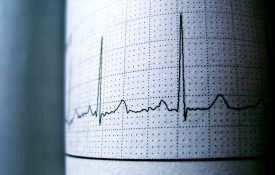
People who respond to stress with negative emotions that carry over from one day to the next report more health problems 10 years later compared with peers who are able to “let it go.”
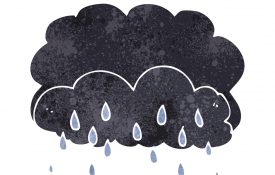
The intense exhaustion of parental burnout can lead parents to feel detached from their children and unsure of their parenting abilities.

Individuals with schizophrenia may have some memory problems, but they are still able to accurately and reliably assess their own personality traits, clinical research shows.

APS Fellow and Charter Member Stuart Vyse, talks about his new book “The Uses of Delusion: Why It’s Not Always Rational to Be Rational.”
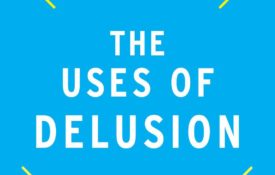
As of December 2021, a record 82.4 million people have been forced to flee their homes to escape war, violence, or persecution. Here’s a look at some recent research (2017–2021) on refugee integration and well-being.

What is the best way to spend money to increase your happiness? A series of studies suggests that it may depend, in part, on how wealthy you are.

Data from a study of German adults showed that people who adopted socially-focused strategies reported increased life satisfaction one year later.

A growing body of research supports the fact that, with acceptance and body autonomy, people who are transgender can live just as happily as anyone else.

Romantic relationships certainly contribute to emotional as well as physical well-being, but studies indicate that people in distressed marriages are at risk for a slew of health problems, including cardiovascular disease, metabolic syndrome, and even

Trigger warnings that alert people to potentially sensitive content are increasingly popular, but data suggest they may not have the intended effect.

The physical and emotional benefits of mind-body practices may not arise from modesty, but rather from enhancing practitioners’ pride in their own abilities – as yogis, at least.

Using reappraisal to regulate our emotions in situations we actually have control over may be associated with lower well-being, researchers find.

Brain imaging research suggests that our ability to do “cold” math calculations may be connected with our ability to regulate “hot” emotions.
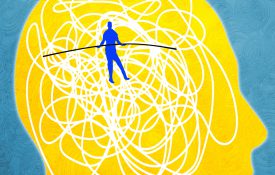
A study of employees in South Africa indicates that people generally view their experiences with smart phones, emails, and wireless networks with more positivity than negativity.

Long chunks of time spent on the road has now been linked to lower life satisfaction.

The act of giving can help those in need even as it improves the giver's own well-being.

"Society has not come to terms yet with the fact that eating disorders are everywhere, they impact everyone, and the problem is growing," says Cheri Levinson.

Providing help to friends, acquaintances, and even strangers can mitigate the impact of daily stressors on our emotions and our mental health, according to research published in Clinical Psychological Science, a journal of the Association

Natural resilience may not be as common as once thought -- data suggests that many people confronted with a major life-altering event can struggle considerably and for longer periods of time.

Data from an online smoking cessation intervention demonstrate the potential of bringing evidence-based mental health care to a wider range of people via the internet.

Money could buy happiness if your purchases fit your personality, a study shows.

Teens are often warned about peer pressure, but research suggests that following the pack in adolescence may have some unexpected benefits for physical health in early adulthood.

Psychological scientists have long known that psychological and social factors can affect our responses to viral infections and vaccinations, but that critical connection seems to have eluded many of the public health officials and others charged with leading the global response to the COVID-19 pandemic in its early days.

Depression treatments include both psychotherapy and pharmacotherapy, but a burgeoning area of research points to another potent therapy: nutrition

Loneliness may be a fundamental part of the human condition, but scientists have only recently begun exploring its causes, consequences, and potential interventions. A special section in Perspectives on Psychological Science, a journal of the

Angelo Brandelli, associate professor of social psychology at the Pontifical Catholic University of Rio Grande do Sul, researches the social and health of the LGBTQ+ population.

A particular challenge to maintaining the status quo may be inherent in how our brain functions.

Read the Full Text (PDF, HTML) Mental illness has wide-reaching effects on people’s education, employment, physical health, and relationships. Although many effective mental health interventions are available, people often do not seek out the care
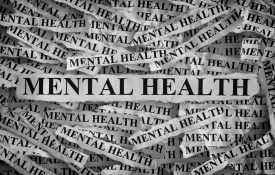
For people in poverty, remembering better times — such as past success — improves cognitive functioning by several IQ points and increases their willingness to seek help from crucial aid services, a study finds.

A one-time intervention that educates teens about the changeable nature of personality traits may prevent an increase in depressive symptoms often seen during the transition to high school.

Most of us see the connection between social and physical pain as a figurative one. But research is providing compelling evidence that the two types of pain share a common source.

Despite the availability of effective evidence-based treatment, about 40% of individuals with serious mental illness do not receive care and many who begin an intervention fail to complete it.

The idea that natural urges “die down” with time seems intuitive, but research shows that it’s being reminded about what not to do, not the passage of time, that actually helps young children control their impulsive behavior.

Data from healthy adolescents indicate that recent exposure to targeted rejection activates the molecular signaling pathways that regulate inflammation.

A unique longitudinal investigation of Major Depressive Disorder tracks the illness across four critical periods in life, providing new insights into how depression emerges and develops over time.
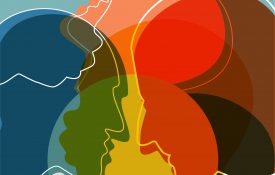
Many people suffering from depression are not seeking treatment, but researchers have identified a possible communication technique that could spur help-seeking.

The United States is experiencing an extreme teenage mental-health crisis. From 2009 to 2021, the share of American high-school students who say they feel “persistent feelings of sadness or hopelessness” rose from 26 percent to
One evening last April, an anxious and free-spirited 13-year-old girl in suburban Minneapolis sprang furious from a chair in the living room and ran from the house — out a sliding door, across the patio
Researchers are hoping to prevent suicides by harnessing the computing power of machine learning and artificial intelligence to pinpoint patients most at risk.

Teenagers and young adults who intentionally hurt themselves engage in such behavior based, in part, on how they experience pain and their emotional distress.

Head of NIMH discusses the use of animal models in mental health research, and what role animal research will have in the NIMH portfolio.
